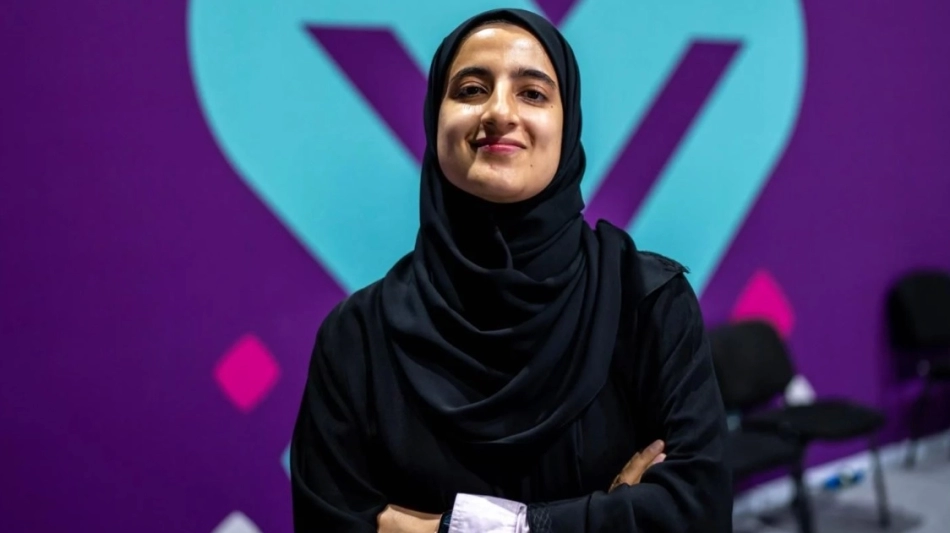Aisha Tanvir is proudly supporting the FIFA World Cup Qatar 2022™ as one of 250 accessibility volunteers.
Born in the UAE to Indian parents, Aisha attended Bristol University in the UK and works as a senior English writer at Qatar Foundation (QF).
Aisha talked about her role and the legacy the tournament will deliver.
What convinced you to become a Qatar 2022 volunteer?
It was Qatar’s commitment to hosting an accessible World Cup. In my interview, I was very clear that the only area I was interested in volunteering was accessibility. At QF, we have the Ability-Friendly Programme – an initiative that supports people of all abilities to engage in sporting and developmental activities. Volunteering for the programme was a huge eye-opener for me – it made me realise how inaccessible the simplest of things can be for people with disabilities and how unfair that is. It also encouraged me to seek ways to make a difference – and what better way than being an accessibility volunteer at the World Cup here in Qatar.
How has your volunteer experience been so far?
We’re a group of around 250 accessibility volunteers and our induction, training and briefings have all been great – we have all learned a great deal about accessibility and are keen to play our part in ensuring an incredible experience for fans and visitors.
Qatar is already a multicultural and cosmopolitan country, but through the volunteer programme it has been wonderful to interact with so many people from different walks of life. The team I am volunteering with includes a speech therapist, a child life specialist, a professor of public policy and law, and an assistive technology expert, making it a truly unique and memorable experience.
Organisers are determined this tournament will leave a lasting legacy – what do you think that will look like?
One of the great things about this tournament is that we are already seeing the legacy. Accessibility is one area that has benefitted massively – including transport infrastructure and access to facilities, such as stadiums and entertainment areas.
Another prime example is the Accessibility Guide that QF has developed. Packed with over 30 attractions and experiences, the guide has been created to help people of all abilities – residents and visitors alike – enjoy Qatar and all it has to offer. On a more individual level, I think the push around accessibility has, perhaps for the first time, allowed a significant proportion of the non-disabled community to become aware of issues like social equity, social justice and access for all. Even if just our group of 250 accessibility volunteers can take what we have learned beyond the World Cup and actively contribute towards a more inclusive and accessible future, it can undoubtedly make a difference.
Another legacy for me personally is that the World Cup has helped me to become more socially responsible and given me a more inclusive mindset. It is wonderful to see that accessibility will be a key legacy for the tournament – everyone has the opportunity to benefit from this amazing event.
Finally, which team will you be supporting during the tournament?
Qatar is my home from home, so I’ll be supporting the host nation.
Source: SC


